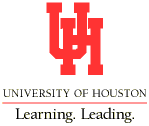|
Computer simulation algorithms are a major tool in many areas of
science and industry, particularly in areas where the behaviour of
fluids or complex materials governs the physical processes of
interest. A typical core of these tools is the numerical approximation
of the solution to coupled nonlinear systems of partial differential
equations, relying on nonlinear and linear solvers, such as Newton’s
method and preconditioned Krylov iterations. Among the most effective
preconditioners for these systems are multigrid and domain
decomposition methods, which use multiscale representations of the
systems to be solved to achieve linear-scaling complexity for the
solution of these linear systems. These preconditioners typically rely
on heuristics in their construction, to approximate solutions to
underlying combinatorial (and other) optimization problems that
specify parameters and other components of the preconditioners, based
on the discrete problem to which they are being applied. In this talk,
I will discuss the use of advanced optimization and machine learning
techniques to approximately solve these optimization problems and the
impact these techniques can have on advanced preconditioner design.
2-2:30pm: talk for graduate students, co-hosted
with the UH SIAM chapter
Title: What do I do once I graduate?
Abstract: While having a graduate degree qualifies you into
many jobs, it isn’t always clear how you’re supposed to find those
jobs, and how those jobs can lead to a career. In this talk, I’ll
explain some of the lingo of academic job searches, how the process
often unfolds, and what you can do to find success.
|

